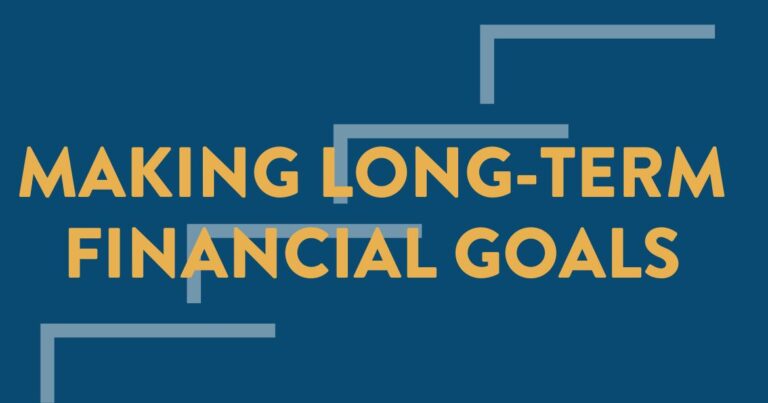If we could build your financial plan with the help of a crystal ball we could build you the perfect financial plan; but we don’t have a crystal ball sitting on a shelf in a GenWealth storage room somewhere. Unfortunately, we can’t predict the future, and retirement has a lot of unknowns to it. When should you retire? How will you spend your time? Will you have enough money?
In all reality, building a financial plan is more like working with a magic 8 ball (yes, like the one you asked whether your crush was into you back in the awkward middle school days). We ask a lot of questions, sometimes circumstances change, and we adjust course to help your plan fit your future as best we can.
If you’ve got questions about retirement, the last thing you want to hear is Ask Again Later or Outlook Not So Good. So, we’ve come up with 5 answers of our own to help you prepare for the future you deserve.
#1 – Knowledge is power.
Making smarter retirement decisions means you can feel more secure about your future. Research from Morningstar found that informed (versus naïve) decisions in just six different areas of retirement planning can increase retirement income by 31% – and there are more than just six areas! That doesn’t mean you have to know everything. You shouldn’t have to spend your whole life studying how money works in order to have a good amount of financial knowledge. Really, it starts with understanding that retirement is more than just investments. This means you need a plan to account for all the facets of your life and an advisor to help you along the way.
#2 – Haste Makes Waste.
Be sure not to give up your long-term job before you know what’s next and that you can afford it. While this may sound obvious, a Bankrate study indicated that 58% of Baby Boomers claimed ignorance of how much money they needed for retirement. Clocking out for the last time can be daunting, but it’s even more so when you’re unsure if the money you’ve worked so hard for will last throughout your non-working years.
While there are multiple reasons you should look before you leap here are the biggest two:
- Benefits:
- Giving up a career often means giving up valuable benefits.
- According to Forbes, the estimated annual value of common benefits is:
- Health Insurance: $5,000 – $30,000
- HSA: $500-$1500 (plus current and future tax savings)
- Retirement Plan: typically 2-6% of your salary in matching contributions
- Dental Insurance: $1,500 – $4,500
- Disability Insurance: $2,000 – $5,000
- Life Insurance: $250 – $500
- Finding a job is hard:
- If you decide that you miss work or miscalculated how much money you needed to retire (or never even calculated it in the first place), finding a comparable job with the same wages at an older age is difficult.
#3 – Fundamentals Matter.
Pre-retirees looking to improve their financial plans should understand that there are three main factors that have the biggest impact on retirement security: retirement age, Social Security claiming age, and spending levels in retirement.
- Retirement Age:
- A study from the Stanford Longevity Center found that just three months of additional work generates the same increase in retirement income as saving an additional one percentage point of earnings for 30 years.
- Social Security Claiming Age:
- With about 2,700 rules that govern Social Security, we aren’t going to make a blanket statement and say you should just take it early or delay as long as possible.
- What’s right for you may not work for someone else. It’s important to understand how Social Security works in relation to your overall financial plan in order to find your best claiming strategy.
- With about 2,700 rules that govern Social Security, we aren’t going to make a blanket statement and say you should just take it early or delay as long as possible.
- Spending Levels:
- While you deserve the future you want, going overboard with your spending in retirement can be dangerous.
- If possible, pay off debt before taking the jump into retirement.
- Don’t spend money on things you don’t need.
- Budget beforehand for the important things.
- While you deserve the future you want, going overboard with your spending in retirement can be dangerous.
#4 – Overcome Your Fear.
Living primarily on withdrawals from your retirement portfolio is nerve-racking. The numbers speak for themselves – retirement fear is real. A survey from Zety found that 40% of Americans fear retirement more than death, and 87% of the respondents said that having a lack of income scares them.
It’s unlikely that Social Security alone will cover living expenses (especially for those who claim early). According to the Senior Citizens League, over the past twenty-one years, Social Security benefits have increased 55%, but the typical senior expenses over that same period grew by 101.7%. This includes things like prescription drugs, Medicare premiums, homeowner’s insurance, and even food, the prices for all of which rose significantly. Worse yet, 40% of seniors surveyed by this organization say that they have no retirement savings to add to their income.
If you rely on your 401(k) alone, you’ve got to determine how much to withdraw. How much you can afford to take out each year depends on a lot of moving parts, including how the portfolio is invested, how volatile investment returns are, how long you expect your retirement to last, and whether you are willing to cut back on withdrawals if the market is down.
Whether or not you can afford your daily expenses shouldn’t be subject to market conditions or the sluggish pace of Social Security cost of living adjustments. Put as briefly as possible, our strategy is to keep the money you need in the short-term in conservative investments while investing the money you don’t need until later on down the road when you have a better chance of higher returns. (If you want a more in-depth explanation of our strategy, get in touch)
#5 – Answer What Ifs.
Perhaps the hardest part of planning for retirement is preparing for the “what ifs.” What if you live much longer than expected? What if you or your spouse has a serious healthcare issue? What if the stock market tanks in the first five years of retirement? Quite frankly, if your financial plan doesn’t address these risks, it’s not working hard enough for you.
By now, you may be feeling a little nostalgic and pondering where your old Magic 8 Ball ended up. Truth be told, it’s probably tucked away in a box in the attic or somewhere in your childhood room collecting dust on a shelf. But the good news is, this is where the similarity between a Magic 8 Ball and your financial plan ends – at least at GenWealth. You see, your financial plan isn’t just something we pull off a shelf after it’s been collecting dust with fifteen others just like it. It’s not a collection of investments that will make us the most money or a line-item list of all the things you can and can’t afford in retirement. Your plan is hand-crafted on paper, on purpose. It’s a collaboration between you and your advisor built on your goals, your needs, and your circumstances – from investment strategies to life insurance protection that gives your family peace of mind. And if you have a financial plan that isn’t that way, our Magic 8 ball says, “Don’t count on it.”
The opinions voiced in this material are for general information only and are not intended to provide specific advice or recommendations for any individual.




